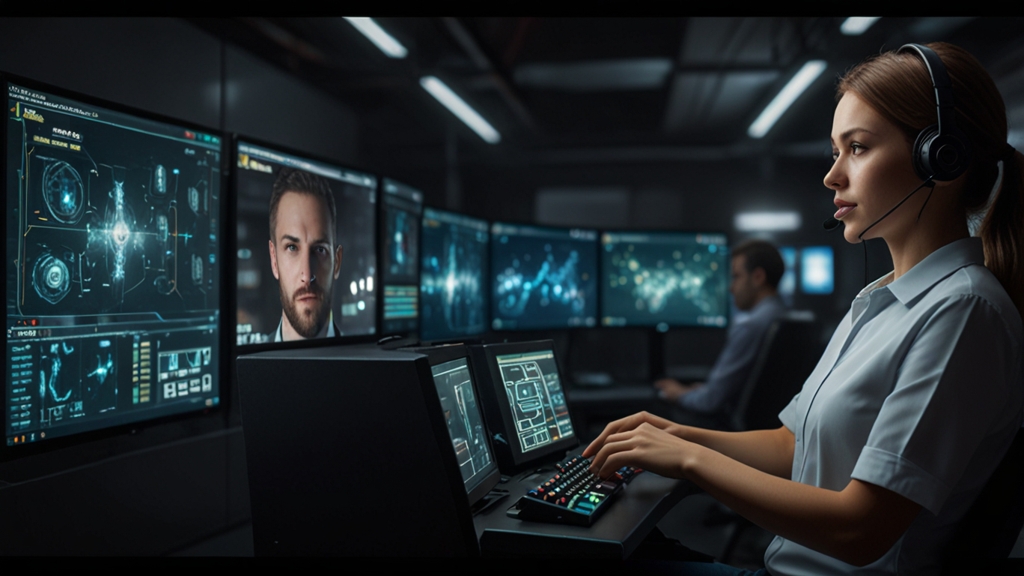Explore the Future of Learning: Essential Tools for the Next Generation
The landscape of education is undergoing a seismic shift, propelled by rapid advancements in technology. As we hurtle towards an increasingly digital world, it is essential to equip the next generation with tools that not only enhance learning but also prepare them for a future replete with challenges and opportunities. This article delves into the innovative tools shaping the future of learning and their potential impact on the forthcoming wave of students.
Artificial Intelligence
Artificial Intelligence (AI) is no longer a concept confined to science fiction. Today, AI is revolutionizing various facets of our daily lives, including education. AI-powered tools can provide personalized learning experiences by analyzing students' strengths and areas for improvement. For instance, adaptive learning platforms can modify content in real-time, ensuring that each student progresses at their own pace.
AI in education has the potential to bridge gaps in traditional learning methodologies, making education more inclusive and effective for diverse learners.
Furthermore, AI-driven chatbots can offer instant assistance with curriculum-related queries, reducing the dependence on teacher availability and fostering a more interactive and engaging learning environment.
Virtual Reality and Augmented Reality
Virtual Reality (VR) and Augmented Reality (AR) are transforming how students interact with information. These immersive technologies facilitate experiential learning, allowing students to explore complex subjects through simulations and interactive modules. Whether it’s a virtual field trip to the Amazon rainforest or an AR-enhanced history lesson, these tools can make learning more dynamic and memorable.
VR and AR are bridging the gap between theoretical knowledge and practical experience, making learning more palpable and engaging.
As the cost of VR and AR equipment continues to decrease, these technologies are becoming more accessible, promising a future where experiential learning is a keystone of education.
Gamification
Gamification has emerged as a potent tool to foster engagement and motivation among students. By incorporating game design elements such as points, badges, and leaderboards, educators can create a more stimulating learning environment. This approach not only makes learning fun but also encourages healthy competition and collaboration among students.
Studies have shown that gamification can increase retention rates and improve knowledge acquisition. As educational institutions continue to integrate gamified learning platforms, we can expect a notable enhancement in student involvement and performance.
Online Learning Platforms
The COVID-19 pandemic underscored the importance of online learning platforms. Tools like MOOCs (Massive Open Online Courses), video lectures, and interactive tutorials have democratized education, making it accessible to anyone with an internet connection. These platforms offer flexibility, allowing students to learn at their own pace and on their own schedule.
Online learning platforms are pivotal in breaking down geographical and socioeconomic barriers, providing opportunities for lifelong learning to a global audience.
As these platforms evolve, incorporating AI, VR, and AR, they will further enhance educational accessibility and quality, opening up new avenues for skill acquisition and professional development.
Data Analytics
Data analytics is increasingly becoming a cornerstone of modern education. By harnessing the power of big data, educators can gain insights into student performance, identify trends, and tailor instructional methods to meet individual needs. Analytics can help in early identification of at-risk students, enabling timely interventions and support.
Moreover, data-driven decision-making can optimize resource allocation, streamline administrative processes, and, ultimately, enrich the learning experience.
The Role of Educators
While technology plays a pivotal role in shaping the future of learning, the role of educators remains indispensable. Teachers are evolving into facilitators and mentors, guiding students through their learning journeys, and helping them harness the power of these advanced tools. Continuous professional development and training for educators are essential to ensure they are well-equipped to navigate and integrate these technologies effectively.
Conclusion
The future of learning is a confluence of advanced technologies and innovative methodologies. Essential tools like AI, VR, AR, gamification, online learning platforms, and data analytics are poised to redefine education, making it more personalized, engaging, and accessible. As we equip the next generation with these tools, we are not just preparing them for academic success, but also for a future where they can thrive and contribute meaningfully to society.










